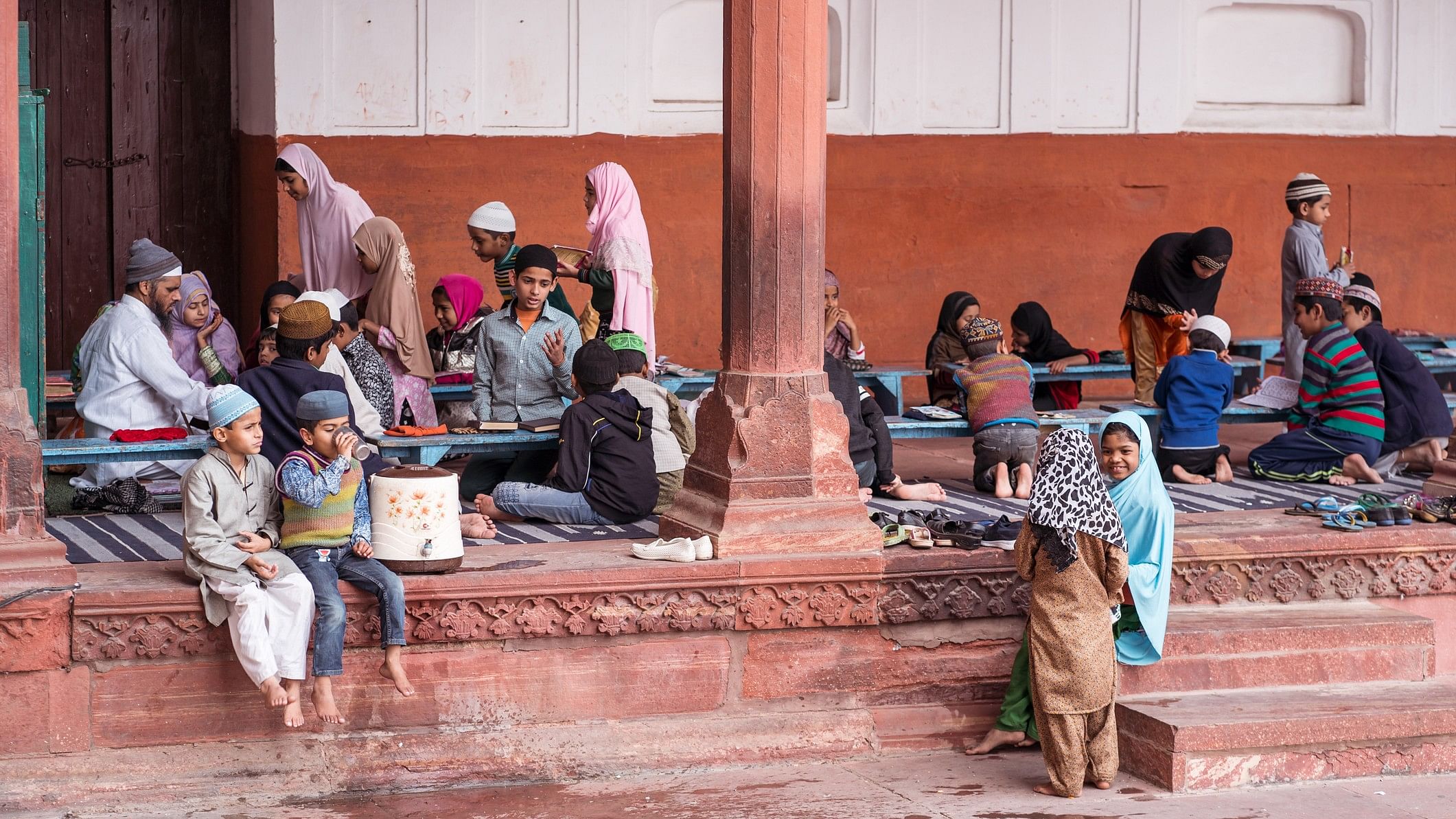
Representative image showing a madrasa in India. Credit:
Credit: iStock Photo
New Delhi: The Supreme Court on Tuesday upheld the validity of the UP Board of Madarsa Education Act, 2004, holding the State has an interest in ensuring that minority educational institutions provide standards of education similar to other educational institutions, so it can enact regulatory measures to promote efficiency and excellence of educational standards.
The apex court set aside the Allahabad High Court's judgment of March 22, 2024 decision, which struck down the whole Act as unconstitutional and violative of the principle of secularism.
A bench of Chief Justice of India D Y Chandrachud and Justices J B Pardiwala and Manoj Misra said the Madarsa Act in fact secured the interests of the minority community in Uttar Pradesh because it regulates the standard of education conducts examinations and confers certificates to students, allowing them the opportunity to pursue higher education.
"The Madarsa Act is consistent with the positive obligation of the State to ensure that students studying in the recognised Madarsas attain a minimum level of competency which will allow them to effectively participate in society and earn a living. Therefore, the Madarsa Act furthers substantive equality for the minority community," the bench said.
In its judgment on a plea filed by Anjum Kadari and others, the bench said Article 21-A of the Constitution and the Right to Education (RTE) Act have to be read consistently with the right of religious and linguistic minorities to establish and administer educational institutions of their choice.
"The Board with the approval of the State government can enact regulations to ensure that religious minority institutions impart secular education of a requisite standard without destroying their minority character," it said.
However, the bench declared that provisions of the Madarsa Act which seek to regulate higher-education degrees, such as 'Fazil' and 'Kamil' are unconstitutional as they are in conflict with the UGC Act, which has been enacted under Entry 66 of List I.
In its decision, the bench said, "The High Court erred in holding that a statute is bound to be struck down if it is violative of the basic structure. Invalidation of a statute on the grounds of violation of secularism has to be traced to express provisions of the Constitution. Further, the fact that the State legislature has established a Board to recognise and regulate Madarsa education is not violative of Article 14. The Madarsa Act furthers substantive equality."
The apex court also held the High Court erred in holding that education provided under the 2004 Act is violative of Article 21A because the RTE Act which facilitates the fulfilment of the fundamental right under Article 21A contains a specific provision by which it does not apply to minority educational institutions.
"The right of a religious minority to establish and administer Madarsas to impart both religious and secular education is protected by Article 30; and the Board and the state government have sufficient regulatory powers to prescribe and regulate standards of education for the Madarsas," it said.
The State has an interest in ensuring that minority educational institutions provide standards of education similar to other educational institutions. It can enact regulatory measures to promote efficiency and excellence of educational standards, the court said.
The court also declared constitutional validity of a statute cannot be challenged for the violation of the basic structure of the Constitution. The reason is that concepts such as democracy, federalism, and secularism are undefined concepts. Allowing courts to strike down legislation for violation of such concepts will introduce an element of uncertainty in our constitutional adjudication, it added.
The bench noted Article 28 of the Constitution prohibits the imparting of “religious instruction” in any educational institutions wholly maintained out of State funds. The provision further provides that no person attending any educational institution recognised by the State or receiving aid from the State funds should be compelled to take part in any religious instruction without their consent. Religious instruction is the inculcation of tenets, rituals, observances, ceremonies, and modes of worship of a particular sect or denomination, it pointed out.
However, "Article 28 does not prohibit educational institutions maintained out of State funds from imparting religious education. Religious education is imparted to children “to make them aware of thoughts and philosophies in religions without indoctrinating them and without curbing their free-thinking, right to make choices for conducting their own life and deciding upon their course of action according to their individual inclinations,”" the bench added.
